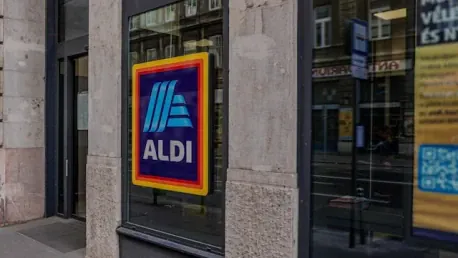Aldi, the well-known discount grocery chain, recently announced the discontinuation of its click-and-collect service. This move has sparked interest and discussion among consumers and industry analysts alike. This analysis delves into Aldi’s decision, exploring the multi-faceted reasons behind it and the broader implications for the grocery retail landscape.
Introduction
In 2020, Aldi introduced the click-and-collect service to streamline customer shopping experiences, particularly amid pandemic-induced shifts in consumer behavior. However, the service will soon be a thing of the past, ending as swiftly as it began.
Rationale for Discontinuation
Operational Efficiency and Cost-Effectiveness
Aldi’s decision largely hinges on its core philosophy of operational efficiency. The click-and-collect service, despite its initial promise, was still in a trial phase and had not shown substantial profitability. The company charges a £4.99 fee for the service, which aimed to balance convenience with cost recovery. However, operational reviews indicated that the service was not contributing significantly to overall profitability.
A spokesperson articulated that Aldi’s primary goal is to maintain efficient business operations, crucial for upholding their reputation for low prices. The focus on efficiency helps funnel resources directly into their core offerings. By scrapping the click-and-collect service, Aldi follows a precedent set by earlier moves, showing a steady commitment to its low-cost operating model. The company’s ability to deliver high-quality products at unbeatable prices is closely tied to its operational streamlining, removing services that may add marginal value but incur higher costs in the long run. Reducing such services enables Aldi to focus on its core areas and maintain its market position.
Historical Precedents and Strategic Consistency
Interestingly, this isn’t the first time Aldi axed services perceived as non-essential. Reviewing past decisions offers insight into their strategic playbook. Last year, Aldi discontinued home delivery services for alcohol and Specialbuys, as well as ended its partnership with Deliveroo. Each move was designed to concentrate on core competencies and optimize resource allocation.
By removing the click-and-collect service, Aldi aligns itself with these prior strategic decisions, signaling a firm commitment to price competitiveness over ancillary customer conveniences. These consistent decisions reveal Aldi’s rigorous adherence to a business model that prioritizes efficiency and cost-effectiveness. For Aldi, every resource must be optimized to reinforce its brand promise: offering high-quality products at the lowest possible prices. The elimination of non-essential services is a strategic reaffirmation of this promise, ensuring that all operational facets are directed towards maintaining a strong price-competitive edge.
Implications for Aldi’s Business Model
Resource Allocation and Operational Focus
Discontinuing the click-and-collect service marks a significant shift for Aldi, known for its efficient operations and low-cost model. Analysts suggest multiple factors may have influenced this decision. Prime among them could be cost-benefit analyses, where the resources and labor required for the service exceeded expected gains. Another reason might be a strategic focus on in-store shopping experiences to highlight Aldi’s competitive pricing and product selection. Additionally, the decision possibly reflects an adaptation to evolving consumer behaviors post-pandemic, where in-store shopping has seen a resurgence.
The ripple effects of Aldi’s choice will likely be far-reaching. It could prompt competitors to reevaluate their own click-and-collect offerings and influence broader industry trends. For consumers, it underscores the ever-changing dynamics of grocery retail, where convenience and cost continually shift the landscape.









